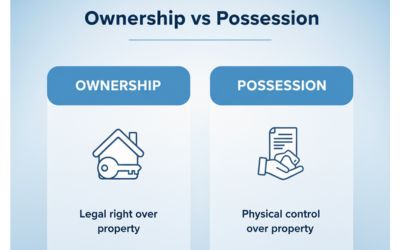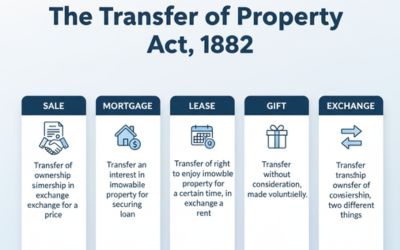Mahomed Musa v. Aghore Kumar Ganguli (1914)
Equity of redemption can end when parties settle by compromise and act on it for long. This case shows how a rajinama settled mortgage disputes permanently.
mahomed-musa-v-aghore-kumar-ganguli

Case Snapshot
- CASE_TITLE: Mahomed Musa v. Aghore Kumar Ganguli (1914) 42 Cal 801; 28 IC 930
- PRIMARY_KEYWORDS: equity of redemption, mortgage redemption, compromise (rajinama)
- SECONDARY_KEYWORDS: Privy Council, Calcutta citation, extinguishment of equity, Bengal High Court
- PUBLISH_DATE: 01-11-2025
- AUTHOR_NAME: Gulzar Hashmi
- LOCATION: India

Quick Summary
This case explains when a mortgagor’s right to redeem ends. The parties settled their mortgage fight by a rajinama (compromise) and followed it for decades. The Privy Council said: because everyone acted on the compromise, the equity of redemption was finished. No separate deed was needed for that period of law.
Issues
- Does the right to redeem survive after a compromise accepted by all parties over time?
- Can a compromise, though not made by a formal conveyance, still end the equity of redemption?
Rules
- Equity of redemption is the basic right of a mortgagor.
- Parties can extinguish this right by a clear agreement that settles the dispute.
- If such an agreement is acted upon for long and accepted by all, courts treat the right as ended.
- In the legal setting of the time, a separate written conveyance was not necessary to validate the compromise.
Facts (Timeline)

Arguments
Appellants (Heirs of Khodajanessa)
- The equity of redemption still exists; compromise did not legally end it.
- No formal conveyance means title never passed; redemption remains open.
Respondents (Mortgagees’ Side)
- The rajinama settled everything: property division + discharge of debt.
- All parties acted on it for decades; equity of redemption is gone.
Judgment
Held: Appeal dismissed with costs. The right to redeem was extinguished.
- The compromise was a full settlement: it divided the property and wiped out the mortgage debt.
- Because everyone followed it for over thirty years, the law treats the compromise as final.
- At that time, a separate formal conveyance was not required to give effect to this settlement.
Ratio Decidendi
Where parties clearly compromise a mortgage dispute and consistently act upon it for a long period, the equity of redemption stands extinguished—even without a separate conveyance in the legal context then applicable.
Why It Matters
- Shows courts respect long-acted compromises in mortgage disputes.
- Clarifies that conduct over time can close the door on redemption.
- Helps in exam answers on equity of redemption and clog arguments.
Key Takeaways
- Compromise + Conduct → can end equity of redemption.
- Long Acceptance → courts treat settlement as final.
- No Separate Deed (then) → not fatal to the settlement.
Mnemonic + 3-Step Hook
Mnemonic: “RAJINAMA CLOSES REDEMPTION”
- Real settlement made.
- Acted on for ages.
- Judgment confirms extinction.
IRAC Outline
| Issue | Whether the compromise ended the right to redeem despite no formal conveyance. |
|---|---|
| Rule | Equity of redemption can be extinguished by a compromise that is acted upon and accepted for long. |
| Application | Decades of peaceful enjoyment under the rajinama showed clear acceptance; mortgage debts were treated as settled. |
| Conclusion | Equity of redemption ended; appeal dismissed with costs. |
Glossary
- Equity of Redemption
- The borrower’s right to reclaim property by paying off the mortgage.
- Razinama (Compromise)
- A written settlement between parties to end a dispute.
- Extinguishment
- Ending a legal right so it cannot be used anymore.
FAQs
Share
Related Post
Tags
Archive
Popular & Recent Post





































































































































Comment
Nothing for now